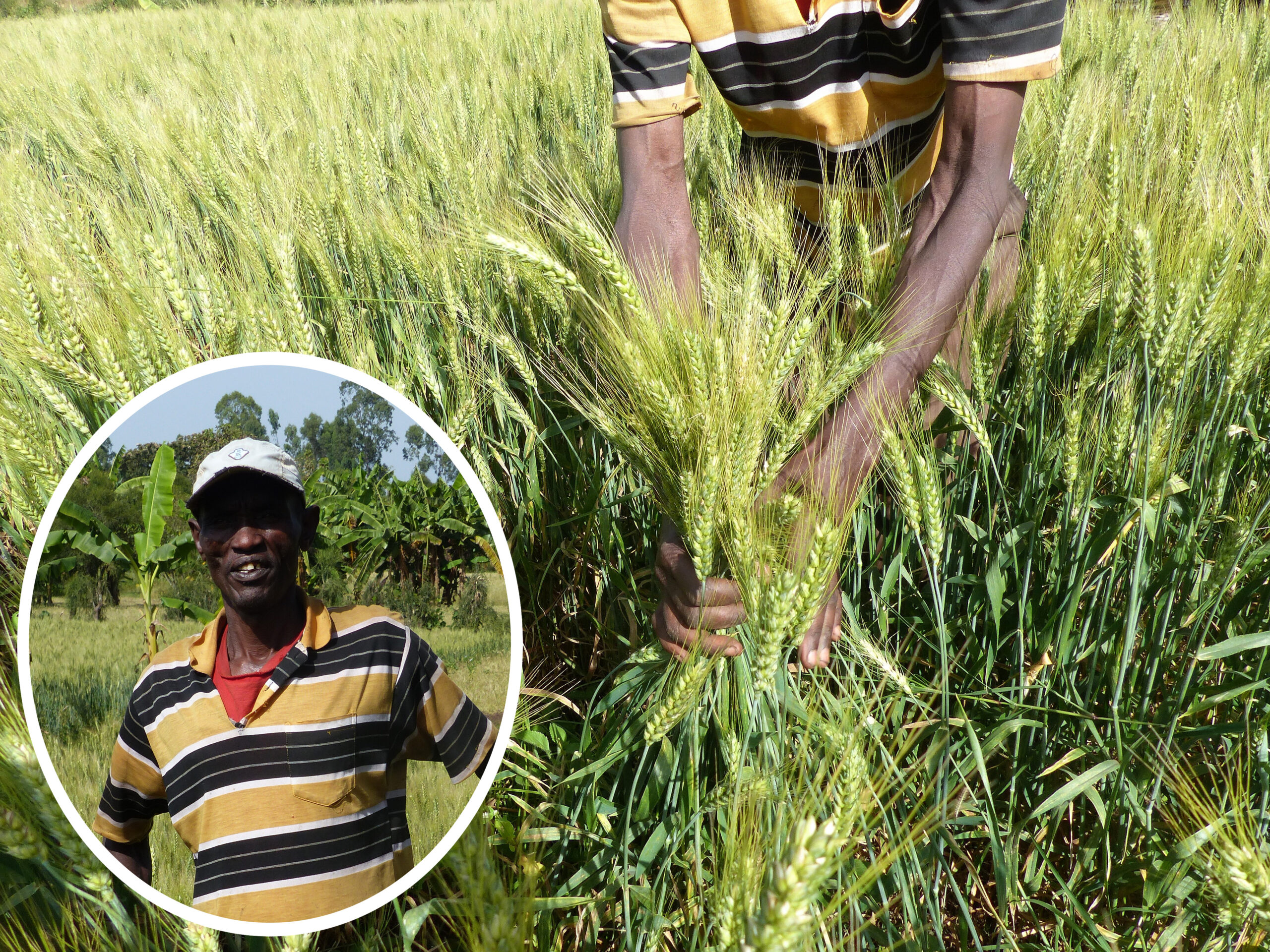Resilient Economy and Livelihoods: REAL

Improving farming practices and sanitation in the Wolayta Zone of Ethiopia
Uefaysa Agebo, father of three, has been farming for over forty years. In those four decades, he has received emergency aid, such as seed, from non-governmental organizations but never ongoing support or advice that would help him with long-term planning.
Last fall, Uefaysa was provided with fertilizer and wheat seed through a seed multiplication bank. Through this bank, select farmers plant high-quality improved seed with the intent to grow more seed, which is then distributed to others in the community. With the help of an iDE advisor, Uefaysa learned about more efficient planting techniques. As a result of quality inputs and support, at the time of this interview, he expected to double the yield on his quarter-hectare plot. After seeing the potential in Uefaysa’s improved crop, five other farmers in the area connected with iDE and have started using the same planting methods.
Helping farmers increase their yields is a critical component of the Resilient Economy and Livelihoods (REAL) program. Most years in Wolayta, 50% of the population faces temporary food shortages and this increases to 90% in years of extreme drought. Through REAL, iDE Canada donors are helping farmers and their families escape the cycle of poverty and hunger.
Agriculture is just one component of REAL. We are also working with local toilet manufacturers who have created a toilet specifically for Wolayta. Early market research shows residents are eager to embrace improved sanitation, which will lead to healthier, more productive communities.
